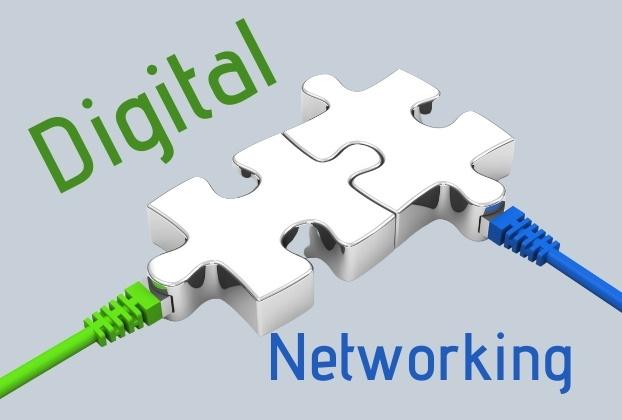Every internet user is engaged in digital networking since communication is via emerging technologies, the use of social media, apps, internet-driven tools, and others.
While the traditional form of communication is good from different perspectives, digital networking had solved the distance barrier in communication and also helped in building vibrant communities, making relationships, working together, and learning from one another in the digital space.
Digital networking has grown rapidly in the last decade, especially in business, and there are still more potentials that are gradually being discovered and used.
What is Digital or Virtual Networking?
Before we continue on the ins and outs of digital networking, we would like to tell you what “digital networking” means precisely, and why digital networking transformation is important to the business.
We often relate “digital networking” to the use of online media to develop a network of workers and business relationships.
The use of social sites such as Facebook, Twitter, Xing, Linkedin, etc. is very popular for this purpose.
However, businesses are now moving their database to the cloud, and business activities to digital space, therefore, business owners now key into virtual networking in the context of online business operations.
This is also the perfect time to offer alternatives to conventional networks, offering your participants in online events the opportunities for networking.
Opportunities and Limits of Virtual Networking
Although nothing can completely outplace direct communication, there are still some aspects in which digital networking can be far more important compared to conventional networking.
In particular, we can benefit from being able to get in touch with people with whom we would not have been able to meet due to distance barriers, work schedule, and other factors but with the appropriate digital networking opportunities, we can communicate on the go.
In principle, we can all benefit from digital networking, but virtual exchange offers a real opportunity and positive change, especially for people who tend to be more reserved.
Note that some event attendees may have problems meeting with new people, exchanging ideas or contacts, etc.
The problem of meeting new people, developing business relationships with people who meet for the first time, and exchanging business ideas is limited in the digital space.
People have more opportunities to familiarize themselves with other people during online events, for example by using the profile of the person in question on conventional social media platforms to find out about their counterparts.
Contact can also be made in no time at all via the chat before the first conversation, while at the same time a certain distance and anonymity are maintained, which helps rather shy personalities to come out of themselves.
For example, by using the profile of the person in question to find out about the other person on conventional social media platforms.
Contact can also be made in no time via the chat box before the first conversation, while at the same time a certain distance and anonymity are maintained.
Whereas, in personal and direct communication, most times, people get into conversation spontaneously and only find out in the course of the interaction whether they have common interests or not and if so, what they are – similar to a blind date.
The probability of goal-oriented communication is therefore significantly lower with digital networking and events.
Online networking, therefore, offers the potential to increase the quality of contacts and make it easier to establish relationships.
The digital event participant does not rely on chance to meeting people but can approach people in a targeted manner.
In addition, digital networking can be a valuable KPI for organizers.
It is the online factor that makes networking measurable, and so, for example, evaluations of how guests interact with each other can be viewed.
Which topics are particularly important to the participants? What questions are asked?
Event organizers thus have the opportunity to recognize patterns and thus predict future developments. This in turn helps networking.












